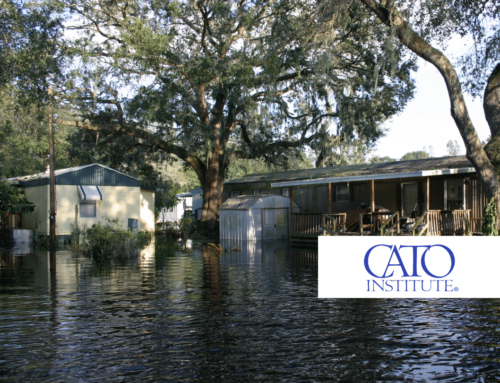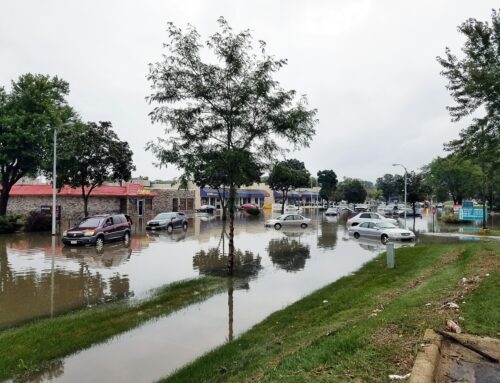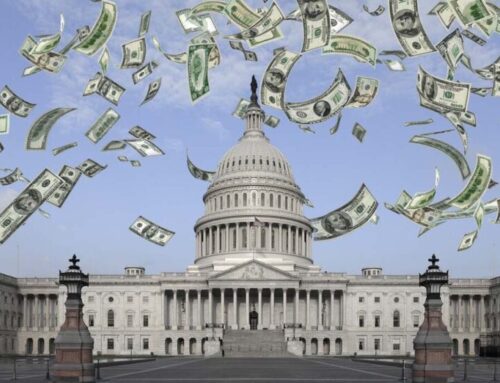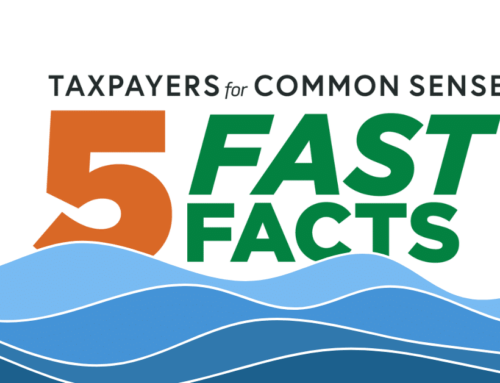Sadly, the nation is about to find out – again – that our federal disaster policies are failing taxpayers and the people impacted by disaster.
When Hurricane Harvey dissipates and eventually disappears, communities in its wake will get a full accounting of its devastation and begin to clean up, then rebuild.
While this is underway, the nation, and Congress, must ensure federal policies are improved to give these communities the tools they need to reduce the likelihood of such a disaster occurring again.
It’s too early to know the extent of Harvey’s destruction, but it’s immense. As of this writing, at least 39 deaths have been attributed to the storm. One estimate puts economic costs at $90 billion, others go far higher.
One number we do know is that Harris County, Texas (home of metropolitan Houston) has nearly 250,000 federal flood insurance policies covering $70 billion worth of property. Harvey will put a strain on local governments, the federal flood insurance program, and individuals throughout the region.
The truth is many victims of this storm will suffer long after Harvey is gone. There are likely tens to hundreds of thousands of properties suffering flood damage that are not covered by flood insurance. They will have a hard time recovering. As with any federally declared major disaster, there is assistance available through the Disaster Relief Fund (DRF).
Despite the big numbers thrown around regarding total disaster costs, flooded homeowners without flood insurance receive little assistance.
After intense rain storms flooded Baton Rouge, LA last summer FEMA reported the average flood insurance policyholder received $85,500 while individuals without received $9150. The Small Business Administration provides low interest loans, but when you’re still paying a mortgage on a destroyed house, an additional monthly loan payment is hardly welcome.
Disasters should bring clarity to risks and focus to solutions.
There are a number of common sense steps we should follow to ensure Washington effectively responds to this latest tragedy without making things worse.
Reform the National Flood Insurance Program so that it reduces risks instead of increasing them. That means we need to improve mapping so homeowners know the risks they face. Rates need to be based on these actual risks. Public subsidies can be used to help those who cannot afford insurance, but they must only be available for those who truly need them separate from the rate which helps communicate risk. It means policymakers need to ensure the continued development of private market alternatives.
Rebuild communities better. Communities can’t simply be rebuilt to pre-disaster conditions. Build them better.
The president recently eliminated a 2014 directive that would have required just that. In any disaster assistance, lawmakers should reinstate this directive to ensure public infrastructure is made more resilient.
That means elevating structures, rebuilding outside the floodplain, and relocations that mitigate risk community-wide. If states and communities want federal support they should be required to build so they survive future disasters better and with less damage. We know there is a risk of flooding, so build to withstand that, at least. If not more.
Take the time to get it right. There is a difference between immediate need and rebuilding. And after large disasters there is, understandably, a louder and more urgent call for emergency spending.
But Congress should be deliberate about any spending.
Especially in the aftermath of a disaster when unscrupulous lawmakers have potential to use emergency spending bills to score cheap political points or lard them up with extraneous non-critical spending. After Superstorm Sandy along with the tens of billions that legitimately went to reconstruction, there were billions of dollars that went to other parts of the country.
For example, Amtrak got cash for long-planned improvements unaffected by the storm, and the federal government used the off-budget funding to make agencies whole. Those were not emergencies. And they had nothing to do with disaster relief. Emergency spending needs to be only on truly emergency needs. Especially since we’re going to pay for post-Harvey reconstruction one way or another.
The floodwaters in Texas, Louisiana, and elsewhere will eventually recede, but we can’t allow the devastation to recede from the public’s eye. There will be more disasters, and we can’t afford business as usual.
Moving on from this disaster without reforming our federal disaster response is fiscally reckless and physically dangerous. •







Get Social